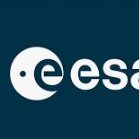Members Can Post Anonymously On This Site
Vega-C pre-launch press briefing
-
Similar Topics
-
By European Space Agency
Video: 00:42:11 Watch the latest updates on ESA’s Fly! Feasibility Study with Daniel Neuenschwander, ESA Director of Human and Robotic Exploration, John McFall, Member of the ESA Astronaut Reserve & Fly! Subject Matter Expert, Jerome Reineix, Fly! Study Manager, and Alessandro Alcibiade, Fly! Flight Surgeon.
Announced in November 2022 during the Ministerial Council held in Paris, France, this unique and groundbreaking study is aimed at understanding and challenging the limitations posed by physical disabilities to human spaceflight. Concluded in late 2024, the Fly! Feasibility Study successfully demonstrated it is technically feasible to fly someone with a physical disability, like John’s, on a six-month mission to the International Space Station as a fully integrated crew member. It underpinned the desire to ensure that space exploration is not limited by physical constraints and that every individual can contribute to our collective understanding of the cosmos and of the benefits of spaceflight for life on Earth.
The end of the feasibility study marks the start of the next phase: Fly! Mission Ready . This is an essential step to carry out the first long-term mission for an astronaut with a physical disability.
View the full article
-
By European Space Agency
Video: 01:22:54 Watch the replay of ESA's start-of-the-year press briefing looking ahead to 2025.
View the full article
-
By European Space Agency
Video: 00:56:21 Watch the replay of the Sentinel-1C pre-launch media briefing for detailed information on the mission which will be launched aboard a Vega-C rocket no earlier than 4 December at 18:20 local time (22:20 CET) from Europe’s Spaceport in Kourou, French Guiana.
View the full article
-
By European Space Agency
Watch live: Sentinel-1C pre-launch media briefing
Follow the media briefing today at 15:00 CET on ESA Web TV
View the full article
-
By European Space Agency
Video: 00:52:00 The Copernicus Sentinel-2C satellite is set for liftoff on 4 September on the last Vega rocket from Europe’s Spaceport in Kourou, French Guiana.
This recording is of a media briefing held on 29 August 2024 to offer journalists the possibility to learn more about the Sentinel-2 mission and the last flight of Vega, Europe’s nimble rocket specialising in launching small scientific and Earth observation spacecraft such as to sun-synchronous polar orbits, following the Sun.
The Sentinel-2 mission is based on a constellation of two identical satellites, Sentinel-2A and Sentinel-2B, flying in the same orbit but 180° apart to optimise coverage and revisit time. Once in orbit, Sentinel-2C will replace the Sentinel-2A unit – prolonging the life of the Sentinel-2 mission – ensuring a continuous supply of data for Copernicus, the Earth observation component of the EU Space Programme.
Data collected from Sentinel-2 are used for a wide range of applications, including precision farming, water quality monitoring, natural disaster management and methane emission detection.
Participants at the media briefing were
Simonetta Cheli, Director of Earth Observation Programmes, ESA
Toni Tolker-Nielsen, Director of Space Transportation, ESA Stéphane Israël, CEO, Arianespace Mauro Facchini, Head of Unit for Earth Observation, European Commission View the full article
-
-
Check out these Videos


Recommended Posts
Join the conversation
You can post now and register later. If you have an account, sign in now to post with your account.
Note: Your post will require moderator approval before it will be visible.